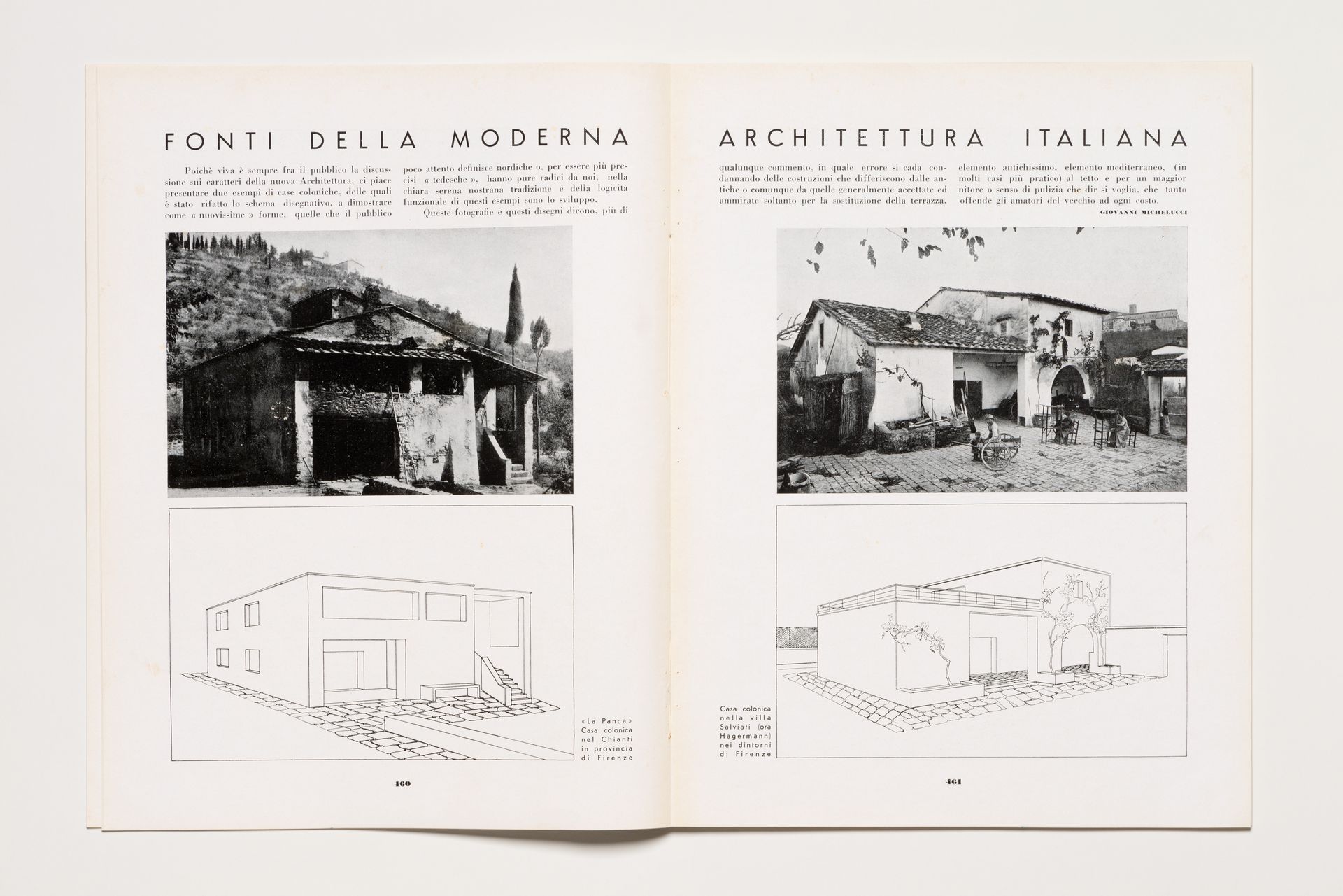Visiting Scholar D. Medina Lasansky presents her research.
This project deals with the Fascist period interest in Tuscan vernacular architecture. During the 1930s, Tuscan farmhouses were thought to embody the qualities of Italianità or Italianness. According to contemporary architectural critics the pure elementary forms of rural farmhouses were the most essential features of modern Italian design. By the late 1930s the discussion of vernacular architecture was infused with the rhetoric of racial and cultural superiority that was familiar to contemporary political discussions – particularly in the aftermath of the Italian colonization of East Africa and the campaign for identifying an autochthonous culture.
The objective of Lasansky’s research is threefold. Drawing upon a variety of primary sources she analyzes the way in which Modern Italian architects mobilized an interest in vernacular architecture within the architectural community; she analyzes how the image of rural vernacular architecture was constructed and propagated through various venues of mass media; and assesses how that mass media allowed the government to co-opt the vernacular for the increasingly racist agendas of the late 1930s. She pays particular attention to the work of three Tuscan Rationalists, Giovanni Michellucci, Pier Niccolò Berardi and Nello Baroni, members of the internationally acclaimed “Gruppo Toscano” responsible for the design of the Florence train station.
Medina Lasansky is an assistant professor of architecture at Cornell University where she teaches in the programs of History of Architecture and Urbanism and Italian Studies. Her research focuses on the intersection of politics, popular culture, and the built environment in the Renaissance and the twentieth century. She is the co-editor of Architecture & Tourism: Perception, Performance & Place (Berg, May 2004), and author of The Renaissance Perfected: Architecture, Spectacle, and Tourism in Fascist Italy (Penn State Press, December 2004) as well as of essays on topics ranging from the pink plastic lawn flamingo to the Venetian in Las Vegas. A former Fulbright Fellow to Italy, Lasansky has held fellowships from the Wolfsonian Museum-Florida International University, the Università di Torino, the Architectural League of New York, Gladys Krieble Delmas Foundation and the Cornell University Society for the Humanities.
D. Medina Lasansky was a Visiting Scholar at the CCA in 2004.
